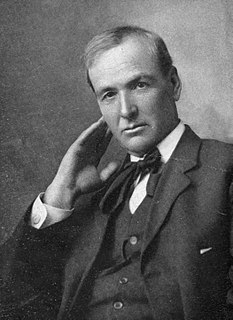A Quote by Brad Schneider
I believe in a progressive tax structure that fairly distributes the costs of government in a way that those of us fortunate to have more, carry more of the burden.
Related Quotes
One of the biggest reasons for higher medical costs is that somebody else is paying those costs, whether an insurance company or the government. What is the politicians' answer? To have more costs paid by insurance companies and the government. ... [H]aving someone else pay for medical care virtually guarantees that a lot more of it will be used. Nothing would lower costs more than having each patient pay those costs. And nothing is less likely to happen.
I think the Ronald Reagan tax reform proposals are a step toward distributive justice. They redistribute the tax burden more equitably and more progressively among individuals and call upon business to carry a somewhat larger proportion of the total tax load. Both of these are steps toward equity and distributive justice.
[The taxing power of the state] divides the community into two great classes: one consisting of those who, in reality, pay the taxes and, of course, bear exclusively the burden of supporting the government; and the other, of those who are the recipients of their proceeds through disbursements,and who are, in fact, supported by the government; or, in fewer words, to divide it into tax-payers and tax-consumers. But the effect of this is to place them in antagonistic relations in reference to the fiscal action of the government and the entire course of policy therewith connected.
Those on the downside of rising economic inequality generally do not want government policies that look like handouts. They typically do not want the government to make the tax system more progressive, to impose punishing taxes on the rich, in order to give the money to them. Redistribution feels demeaning. It feels like being labeled a failure.
Regarding the Economy & Taxation: America's most successful achievers do pay a higher share of the total tax burden. The top one percent income earners paid 18 percent of the total tax burden in 1981, and paid 25 percent in 1991. The bottom 50 percent of income earners paid only 8 percent of the total tax burden, and paid only 5 percent in 1991. History shows that tax cuts have always resulted in improved economic growth producing more tax revenue in the treasury.
Mr. Trump is more than just a boss to those of us who have been fortunate enough to be close to him, both professionally and personally. He's more like a patriarch, a mentor. These qualities make him very endearing to me, which is why I am so fiercely loyal to him and committed to protecting him at all costs.
In 1848, Karl Marx said, a progressive income tax is needed to transfer wealth and power to the state. Thus, Marx's Communist Manifesto had as its major economic tenet a progressive income tax. ... I say it is time to replace the progressive income tax with a national retail sales tax, and it is time to abolish the IRS.
We simply cannot continue to live with a [tax] system which has so many inequities. It must be changed in such a way that each of us pays a fair share of the burden. It has been said that one man's loophole is another man's livelihood. Even if this is true, it certainly is not fair, because the loophole-livelihood of those who are reaping undeserved benefits can be the economic noose of those who are paying more than they should.































